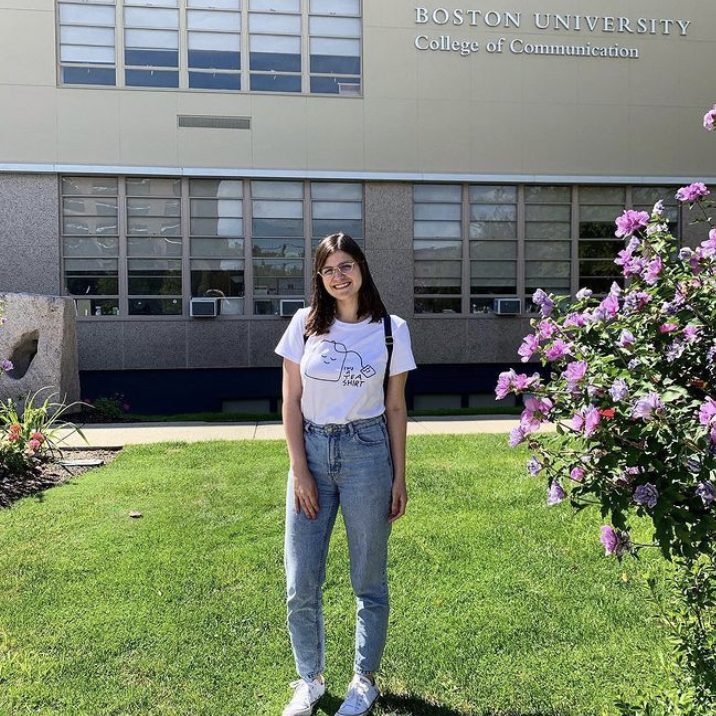Spotlight on Marcela Quintanilla-Dieck: Merging Communications and Public Health to Assist the Boston Medical Center COVID-19 Biorepository

By Meghan Smith
Marcela Quintanilla-Dieck is a natural storyteller with a passion for health-related communications. Believing we are all connected through stories and narratives, Marcela aims to use her communications skills to promote positive health outcomes.
As a Master’s of Science in Public Relations student at the Boston University School of Communications, Marcela embraced opportunities to collaborate with peers at the School of Public Health. She did this first as a student in “SB 733, Mass Communication and Public Health,” taught by COVID Corps mentor, Lynsie Ranker, and then as a COVID Corps member.
Marcela’s first COVID Corps project was an ideal blend of health and communications. She was part of a team (along with Lynsie and fellow COVID Corps member, Sharon Casey) that created a fact sheet for the Boston Medical Center’s COVID-19 Biorepository. The Biorepository (or Biobank) allows researchers to study COVID-19 using blood and tissue from patients with COVID-19 who agree to participate.
The team’s task was to design a factsheet for potential participants that could explain what a biorepository is, how this particular initiative aimed to advance knowledge of COVID-19, and how participants’ samples and information would be protected. Marcela chose styles, colors, icons, and wording for the factsheet. Marcela understood that the words “biorepository” and “biobank” might be intimidating to some people, but that presenting the information with pleasant colors and simple words could make people realize that they could not only understand the information, but also had an opportunity to help advance the science surrounding COVID-19.
Multiple studies are now underway using data from the Biorepository, and the team at BMC acknowledges the role of this project: “These materials were a critical component to our patient recruitment strategy, and we were so thankful for the support this team provided. They were professional, communicative, and expeditious in their work, and we were impressed and satisfied with the final outcome.”
Marcela was inspired by her collaborations with Masters of Public Health students – calling communications and public health “a wonderful intertwinement.”
Going forward, Marcela is committed to using her communications skills to create health-related messaging that is diverse and inclusive. She is particularly keen on developing health literacy education programs for people who speak a primary language other than English, especially Spanish-speaking communities in the United States. Her overarching goal can be summed up as, “when people ask me, ‘what role do you want to have?’ I think the answer to that question is: I just want to have a role that I’m passionate about, and I just want to know that it’s going to be purpose-driven and have an impact. That, for me, is what matters.”